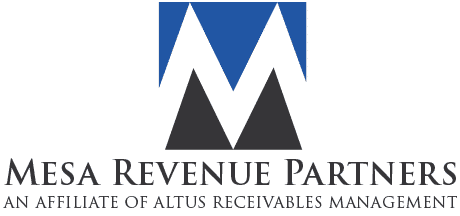Overcoming Unpaid Debts: Key Phases Of International Debt Collection For Business Success
Recovering funds from foreign clients or entities can be a challenging but essential process for businesses. With the growing interconnectedness of the global economy, cross-border transactions have become more common, yet unpaid debts continue to pose significant obstacles. Grasping the key components and stages of international debt collection is vital for businesses to safeguard their financial interests.
What Is International Debt Collection? Important Concepts Explained
International debt collection involves recovering outstanding debts from individuals or businesses in other countries. Due to varying legal systems, cultural norms, and financial regulations, it often requires a specialized approach. A key challenge is navigating the laws governing debt collection across borders, including any treaties or agreements that may impact the process.
To overcome these challenges, many businesses turn to an international commercial collections agency with experience in managing cross-border collections. To clarify, services offered by these agencies typically include:
- Assessing the debtor’s financial situation and credibility.
- Conducting investigations to evaluate the debtor’s ability to pay.
- Negotiating mutually acceptable repayment terms.
- Initiating legal action when necessary, based on the debtor’s location and applicable laws.
The 3 Stages Of International Debt Collection
International debt collection consists of three stages: pre-legal, judicial, and enforcement. Each requires careful planning and compliance with both local and international laws.
Pre-Legal Phase
The pre-legal phase, or amicable phase, focuses on recovering the debt without resorting to litigation. The primary approach is communication. Phone calls, emails, and letters aimed at negotiating repayment terms!
If these efforts don’t resolve the situation, a debt recovery litigation strategy is often prepared. However, the goal is to preserve the business relationship while addressing the debt, as the debtor may simply be experiencing temporary financial challenges.
Judicial Phase
When amicable negotiations fail, the judicial phase begins, involving formal legal action. Creditors then seek a court judgment to recover the owed amount. This stage can be complex in international debt collection due to varying legal systems.
Creditors may need to navigate local courts or consult with a business debt collection agency or foreign legal counsel, depending on the debtor’s location. It may involve lawsuits, court orders, and enforcement actions like asset seizure.
Enforcement Phase
The enforcement phase is the final step. After obtaining a court judgment, creditors must take action to collect the debt. This can include asset seizure, freezing bank accounts, or garnishing wages, depending on the jurisdiction.
For example, specialized agencies can assist in these efforts, ensuring compliance with local laws while pursuing the debtor’s assets across borders. Enforcing foreign judgments can be especially challenging, as additional steps may be required to have the decision recognized in the debtor’s country.
1. Assessing The Debt Situation
Before beginning the collection process, it is crucial to assess the debt situation thoroughly. This includes reviewing the original contract or agreement, ensuring that the debt is legitimate and backed by proper documentation. Understanding the debtor’s financial situation is also vital in determining the best course of action.
For international debts, this assessment might include conducting commercial investigations to evaluate the debtor’s ability to pay. Knowing the debtor’s financial standing and potential roadblocks can help decide whether the debt collection efforts are worth pursuing.
2. Establishing Communication With The Debtor
Once the debt has been assessed, communication is key. At this stage, establishing a clear line of communication with the debtor is essential. The initial contact may involve friendly reminders, setting payment deadlines, or negotiating a payment plan.
Cultural and language differences must be taken into account, especially when dealing with clients from different countries. Engaging professionals or utilizing a corporate collections agency with international expertise can help bridge these gaps and facilitate smoother communication.
3. Legal Framework For International Debt Recovery
The legal framework governing international debt recovery depends on several factors, including the jurisdiction where the contract was formed, where the debtor resides, and any international agreements between the creditor’s and debtor’s countries.
Understanding these legal factors is essential for determining debt collection strategies. Some countries have treaties like the Hague Convention to aid in cross-border enforcement, while others may not recognize foreign rulings, complicating the process.
4. Enforcement Strategy
Developing an effective enforcement strategy is key to successful international debt recovery. This strategy must take into account the debtor’s location, the local legal system, and the specifics of the case.
Additionally, a corporate collections agency can help develop a tailored enforcement strategy, including legal actions and working with local authorities to enforce foreign judgments. For example, a U.S. creditor may need a local agency to enforce a judgment in the debtor’s country, as enforcement methods vary by jurisdiction.
5. Documentation & Record-Keeping
Thorough documentation and record-keeping are essential throughout the international debt collection process. Keeping detailed records of everything, from initial communications to legal actions and enforcement efforts, helps ensure the process remains on track.
Proper documentation is crucial if legal action is needed. A well-documented paper trail, including invoices, contracts, emails, and court rulings, helps prove the legitimacy of the debt and the creditor’s recovery efforts.
6. Continuous Monitoring & Adaptation
International debt collection is rarely a linear process. New challenges can arise at any stage, requiring creditors to monitor progress closely and adapt their strategy as necessary.
For example, if a debtor’s financial situation changes or new legal barriers emerge, a B2B commercial litigation services approach may be required. Ongoing monitoring ensures that creditors can pivot their efforts and remain proactive in recovering the debt.
Partner With a Trusted Commercial Collections Agency For Global Debt Recovery
Understanding the basics of international debt collection is essential for businesses and individuals alike.
If you are facing challenges with international debt collection, don’t hesitate to reach out to Mesa Revenue Partners, a trusted Commercial Collections Agency, for expert assistance. Our team specializes in helping businesses recover outstanding debts efficiently. Contact us!








